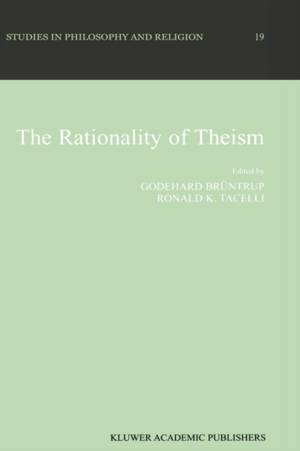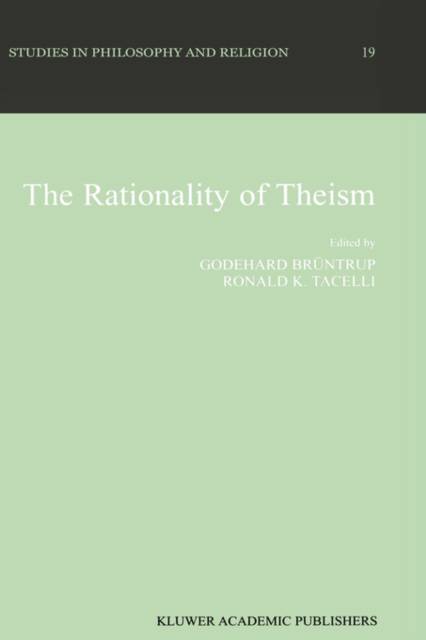
- Afhalen na 1 uur in een winkel met voorraad
- Gratis thuislevering in België vanaf € 30
- Ruim aanbod met 7 miljoen producten
- Afhalen na 1 uur in een winkel met voorraad
- Gratis thuislevering in België vanaf € 30
- Ruim aanbod met 7 miljoen producten
Zoeken
The Rationality of Theism
€ 153,95
+ 307 punten
Omschrijving
In May 1998, a distinguished group of philosophers met in Munich to discuss the rationality of theism. This volume is a collection of the papers read at that conference. While in recent years the rationality of theistic belief has been widely discussed, the Munich conference was an event of some moment in the history of philosophical dialogue: for the first time German- and English-speaking philosophers of religion, representatives of both the Continental and the Anglo-Saxon traditions, joined together to grapple with a common philosophical theme. This multiplicity of perspectives brought a unique richness to the analysis of rationality that no one tradition by itself could provide. Readers will find that richness displayed in the pages of this book. Professional philosophers will find here a great deal to stimulate and challenge them; but graduate students, capable undergraduates, and all others with a serious interest in the philosophy of religion will be well rewarded for their efforts to come to grips with these thought-provoking papers.
Specificaties
Betrokkenen
- Uitgeverij:
Inhoud
- Aantal bladzijden:
- 274
- Taal:
- Engels
- Reeks:
- Reeksnummer:
- nr. 19
Eigenschappen
- Productcode (EAN):
- 9780792358299
- Verschijningsdatum:
- 31/07/1999
- Uitvoering:
- Hardcover
- Formaat:
- Genaaid
- Afmetingen:
- 156 mm x 234 mm
- Gewicht:
- 576 g

Alleen bij Standaard Boekhandel
+ 307 punten op je klantenkaart van Standaard Boekhandel
Beoordelingen
We publiceren alleen reviews die voldoen aan de voorwaarden voor reviews. Bekijk onze voorwaarden voor reviews.










